Iran Bans Sunni Cleric from Leading Prayers Amid Crackdown
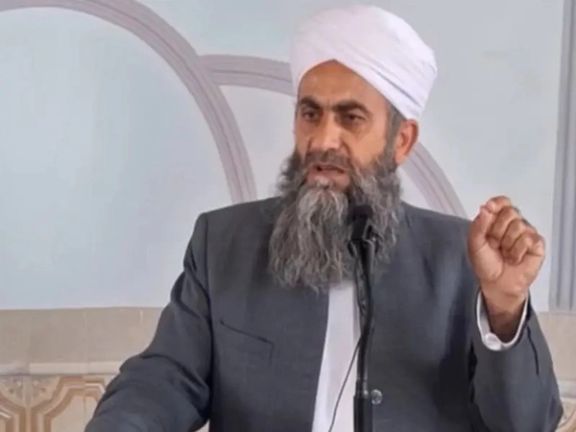
Sunni cleric Mowlavi Abdulahad Parsa has been removed from his position as leader of Friday prayers as the Iranian government continues to oppress the Sunni community.

Sunni cleric Mowlavi Abdulahad Parsa has been removed from his position as leader of Friday prayers as the Iranian government continues to oppress the Sunni community.
The decision, issued in absentia by the Special Clergy Court of Mashhad, also bans Mowlavi Parsa from delivering speeches within the province, according to rights group Haalvsh’s report on Saturday.
Security agencies have threatened the residents of Taghan village with severe consequences if they protest the decree or support Parsa. A source told the rights group that security agencies also threatened the residents that they would be deprived of all government services and allocation of construction funds to the village.
Parsa was previously arrested and interrogated for a week in October 2022 amid the nationwide uprising in which his sermons addressed government cruelty.
He especially spoke out against Zahedan’s brutal Bloody Friday massacre when security forces opened fire on peaceful protestors on 30 September 2022, killing over 100 people. Security forces fired shots at protestors from rooftops near the Grand Mosalla prayer hall and the Makki Mosque, Zahedan's main Sunni mosque.
The cleric also supported the stance of the famed preacher, Mowlavi Abdolhamid, a prominent Sunni cleric and outspoken critic of the Iranian government, who serves as the Sunni Friday prayer Imam in Zahedan, the provincial capital of Sistan-Baluchestan.
Sunni clerics have continued to endure legal harassment in the wake of the protests as the Shia government continues to suppress the minority which constitutes around 10 percent of Iran's population.

Sweden's Minister of Foreign Affairs, Tobias Billstrom, has publicly acknowledged a significant oversight in travel advisories concerning Iran, following the recent controversial prisoner swap deal with Tehran.
Sweden's Minister of Foreign Affairs has publicly acknowledged a significant oversight in travel advisories concerning Iran, following the recent controversial prisoner swap deal between Iran and Sweden.
The exchange involved a convicted war criminal, Hamid Nouri, who was serving a life sentence in Sweden for his role in the 1988 mass execution of prisoners serving their sentences in Iran, released in exchange for Swedish EU diplomat Johan Floderus and Swedish-Iranian citizen Saeid Azizi.
"A travel advisory to Iran was not in place when Johan Floderus went there," Billstrom admitted in a statement released on the platform X on Sunday.
"A decision to advise against all non-essential travel to Iran was made only on April 28, 2022, which was eleven days after Johan Floderus was detained in Iran. Subsequently, on June 23, 2022, a broader advisory against all travel to Iran was issued," Billstrom added.
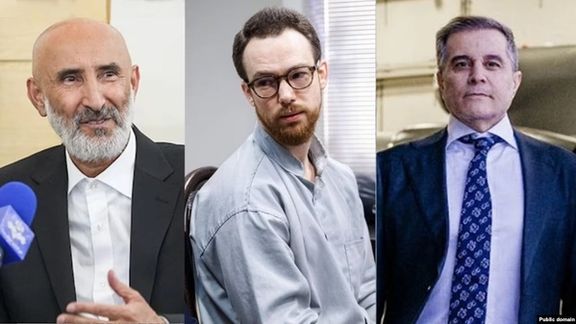
This admission highlights a critical lapse in Sweden's official guidance, particularly concerning the safety and security of its citizens traveling to Iran. The error was especially costly in light of the detention of Swedish dual nationals in Iran in previous years including the arbitrary arrest of Ahmadreza Djalili’s in 2016, who was also left out of the prisoner swap deal.
Djalili was arrested in 2016 while visiting Iran as a scholar and accused of espionage. He was later tried on trumped-up charges and sentenced to death, without due process of law.
This oversight has raised broader questions about the Swedish authorities' negligence, as they delayed issuing a warning against all travel to Iran until June 2023, despite clear threats from Iranian officials in May 2022 in retaliation for Nouri’s trial in Sweden. On May 19, 2022, Amnesty International issued a public statement warning of Iran's threats to execute Ahmadreza Djalali in response to Hamid Nouri's prosecution.
Most Western countries have strict travel warnings for their citizens urging them not to visit Iran, which has routinely arrested ordinary travelers and held them as de fact hostages to force Western countries to make concessions.
Amnesty International highlighted in its statement, “State media articles published on May 4, 2022, provide further evidence that the Iranian authorities are using Ahmadreza Jalali’s life as a bargaining chip to pervert the course of justice in Sweden and compel Swedish authorities to release Hamid Nouri.”
Yet, Sweden failed to issue a warning to its citizens until it was too late. Johan Floderus, an individual working for the Swedish foreign service decided for personal reasons to visit Iran and was arrested by the notorious intelligence organization of the Revolutionary Guard.
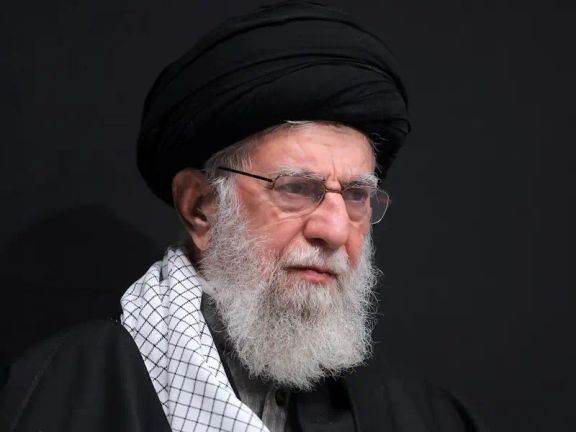
Iran's Supreme Leader Ali Khamenei has branded children's toys a 'cultural invasion' as the reach of Iran's theocratic dictatorship deepens further.
Khamenei has declared the toy industry as "future-making," arguing that foreign toys do not conform to Iranian culture and suggesting that even children's playthings can be tools of Western influence.
Mohammad Mehdi Baradaran, Deputy Minister of Industry, revealed Sunday that despite a reduction in the smuggling of foreign toys amid the regime's crackdown, to less than half of previous levels, Khamenei continues to express concerns over their presence in Iran.
It is yet another example of the regime's intrusion into the country's private lives, which extends from internet bans and dress codes, to children's entertainment. Dolls such as Barbie have been blacklisted.
Over the years, Iran has unofficially banned a range of things from unveiled mannequins to wearing Western neck ties in court or government offices.
Meanwhile, as the focus remains on controlling the country's citizens, the regime remains locked in the worst economic crisis since the founding of the Islamic Republic and at the heart of the Middle East's most turbulent times for decades.
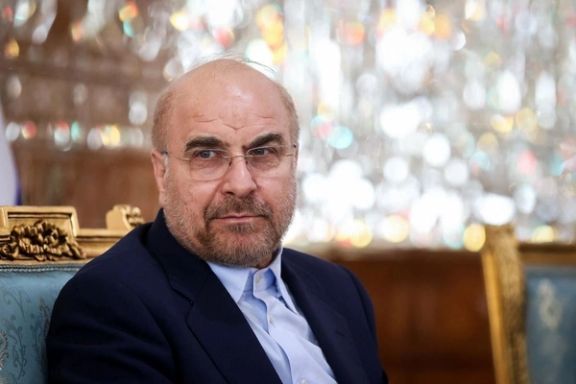
In the lead-up to Iran's presidential election, candidate Mohammad Bagher Ghalibaf has laid out a foreign policy that continues to bear the hallmark of Tehran's war-mongering.
Parliament speaker Ghalibaf, building on policies from the Ebrahim Raisi administration, insisted in a televised debate that "regional authority" is the cornerstone of Iran’s foreign relations, a stance that may further isolate Iran internationally amidst an ongoing war led by Iran's proxies.
He said, "Our issue is Iran and Iran's positioning in international relations," suggesting a focus on strengthening the so-called 'axis of resistance, Iran's terror proxies such as Hezbollah in Lebanon and the Houthis in Yemen.
With Hezbollah currently at war with Israel and the Houthis blockading the Red Sea region in support of Iran-backed Hamas's war with Israel in Gaza, his campaigning shows a certain continuation of Iran's warmongering.
Iran's Supreme Leader, Ali Khamenei, founded the proxies in a bid to fight Iran's archenemy Israel and the West and any presidential hopeful must be sure to align with the theocratic dictator's policies in order to succeed in the upcoming June 28 poll.
Though he did not give details of how he proposed this, the former military officer also promised to leverage negotiations to ensure the lifting of global sanctions in a way which is "real and measurable," focusing on revitalizing oil sales, banking operations, and foreign trade.
”Given that we are under sanctions, priority should be given to small companies to lift the sanctions, as they provide us with good capacities," he said, as Iran continues to find ways to evade international sanctions. Iran has been sanctioned for its ongoing nuclear program, human rights abuses and support of Russia's war on Ukraine.
The upcoming elections follow the sudden death last month of President Ebrahim Raisi who was killed in a freak helicopter crash along with his delegation.
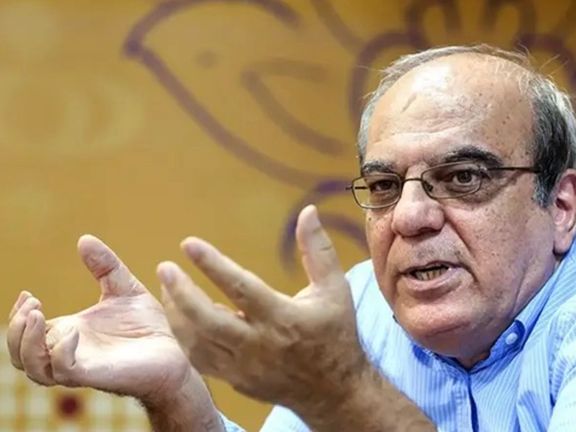
Iranian journalist and political activist Abbas Abdi says a significant number of Iranians are not inclined to vote in the snap presidential elections on June 28, disillusioned with the political system.
In an op-ed for the Etemad newspaper on Sunday, Abdi stated, "the ice of boycotting the elections has not yet begun to melt.”
He added that “one should not need to provide reasons or arguments for not participating, but rather, reasons and analysis are required for deciding to participate.”
The sentiment underscores the broader public dissatisfaction that was evident during the historically low turnout in the March parliamentary elections. Many Iranians, disenchanted with continuous economic struggles and government oppression, feel alienated from the political process. Key issues fueling voter apathy include rampant inflation, crackdowns on protests and dissent, and a pervasive sense of ineffective governance.
Since 2020, the core of the clerical regime loyal to Supreme Leader Ali Khamenei have barred other insider from running in elections, giving control of the parliament and the presidency to hardliners. Seeing little choice among candidates, voters have stayed away, bringing participation well below 50%.
With the presidential election approaching following the sudden death of Ebrahim Raisi in helicopter crash, the lack of enthusiasm suggests that many in Iran continue to see no value in participating in what they perceive as a flawed and predetermined electoral system.
The system faces a challenge in convincing a disillusioned populace that their votes matter and can lead to tangible changes, a task made even more daunting in the current climate of widespread discontent and economic hardship.
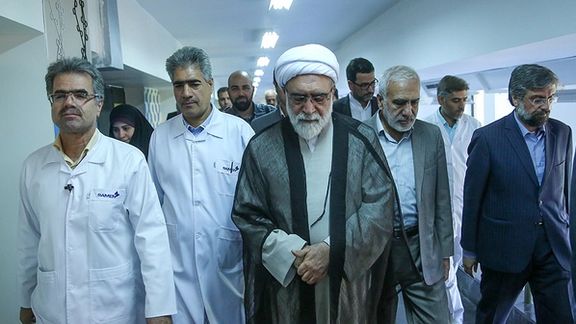
Following Iran International's report on a contaminated dialysis solution from a company linked to the Supreme Leader, Iran's acting president has ordered an urgent investigation by the anti-corruption coordination head.
Iranian state media has reported that Mohammad Mokhber called for a thorough inquiry into reports of adverse effects from the dialysis solution.
On Tuesday, Iran International TV's Titre Aval program (First Headline) revealed documents showing that peritoneal dialysis solutions produced by Samen Pharmaceutical Company, owned by US-sanctioned Astan Quds Razavi, are contaminated with aluminum. The report revealed contamination has poisoned several dialysis patients, leading to some fatalities. The Astan business conglomerate is controlled by Ali Khamenei's office.
Peritoneal dialysis is a kidney failure treatment that filters blood through the abdominal lining, requiring a surgical tube insertion into the belly.
Iran International's report featured voice messages from individuals sharing their loved ones' experiences, recounting seizures and coma-like states with decreased consciousness levels. Following the program's broadcast, another individual reported the death of a patient due to the contamination's consequences.
Iran International also published two letters regarding this issue.
The first, dated June 6, from the Iran Food and Drug Administration (IFDA) to Samen's CEO, demanded the halt of the distribution and use of the contaminated solutions.
The second, dated June 8, from the director of the Iranian Nephrology Association, informed nephrologists across Iran about the contamination and patient poisonings. It confirmed that Samen acknowledged the contamination.
During Donald Trump's presidency, the US sanctioned Astan Quds Razavi, a robust religious-business foundation managing the Imam Reza Holy Shrine, for being controlled by Iran's Supreme Leader.
The institution enables “Iran’s elite to sustain a corrupt system of ownership over large parts of Iran’s economy,” according to the US Treasury.
Iran's late president, Ebrahim Raisi, was a former head of Astan Quds Razavi, which has extensive economic holdings in Iran. Raisi's successor, Ahmad Marvi, was also sanctioned under Executive Order 13876.
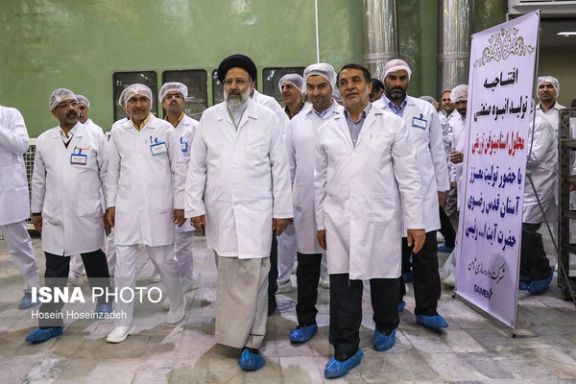
Swiftly after the Iran International report, state media reported that the Iran Food and Drug Administration (IFDA) also said it had received reports of problems and side effects related to Samen Pharmaceutical Company's peritoneal dialysis solution. They confirmed on Wednesday that an order had been issued to stop the production, distribution, and consumption of this product's entire manufacturing series until more detailed tests were carried out in the country.
According to Hamshahri Online in Tehran, the Samen company also announced that the issue is under investigation.
This report emerges amidst significant concerns over the scarcity and escalating costs of medications in Iran, coupled with pharmaceutical companies facing bankruptcy and closure. Local media report that many common and critical hospital drugs are unavailable.
The government controls medicine imports, allocating foreign currency to public and private sector importers. However, Iran's economic challenges, worsened by numerous sanctions, have stretched the government's ability to allocate foreign currencies. Additionally, reports of widespread corruption in the pharmaceutical sector have exacerbated the current situation.
Despite these challenges in the health sector, the government continues to finance a host of armed militias throughout the Middle East, including Hamas, the Lebanese Hezbollah and Houthis in Yemen, in addition to its military presence in Syria.
Over the past few years, the Ministry of Health and the Red Crescent have seen numerous reports and news reports about corruption in drug imports. It has been revealed that some groups allocated government funds for medicine imports but misused these funds for other purposes.